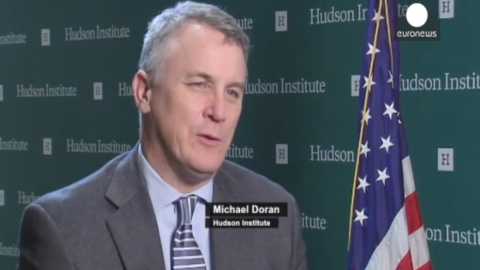Monday night’s extension of talks to curb Iran’s nuclear ambitions is being viewed in Washington foreign policy circles as a victory for Tehran.
Diplomatically there is hope among the six world powers (P5+1) who are taking part in the negotiations, that a deal will be reached, but Iran’s supreme leader Ayatolah Ali Khamenei shows no sign of being willing to compromise.
David Albright who is President of the Institute for Science and International Security and a specialist on proliferation issues told euronews’ Washington Correspondent Stefan Grobe that he sees the whole process of ‘give and take’ as being one sided:
“It is going to be very tough and the question always comes down to why is it, when the crunch point comes, why don’t the Iranian negotiators have more flexibility? And so you have to ultimately go back to the view that the Supreme Leader and his decision making bodies haven’t decided they really want a deal.”
Michael Doran from the conservative Washington think tank, The Hudson Institute was likewise pessimistic about the outcome after seven more months of talks:
“I don’t believe we will see a deal. We will see a deal only if the United States and the other members of the P5+1 completely capitulate and give the Iranians exactly what they want.”
“The Iran nuclear talks have become the most divisive foreign policy issue in the US. The Republicans want to impose tougher sanctions on Tehran, but President Obama believes that would only derail the negotiations and lead to further instability in the Middle East. For now the talks continue – and nobody gets hurt,” concluded our correspondent in Washington.



















